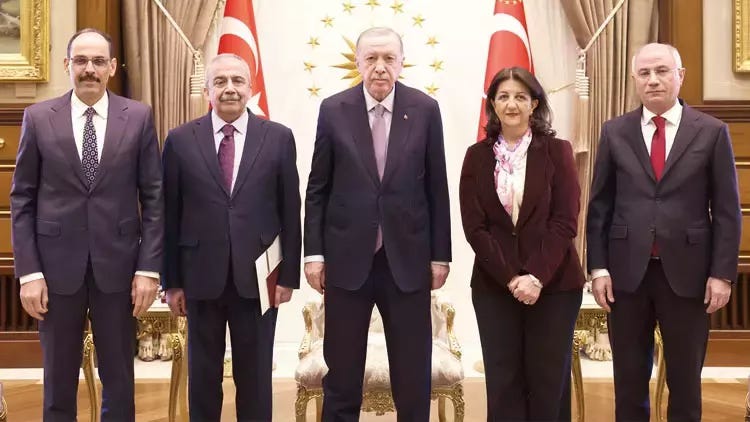Next steps in Turkey’s Kurdish process and Rojava’s recalibration
A farewell to arms in Turkey, and a negotiated future in Syria—if the moment holds.
Just when many had assumed the negotiation process between the imprisoned PKK leader Abdullah Öcalan and the Turkish state had flatlined, something unexpected happened. Despite the political chaos following the arrest of Istanbul mayor Ekrem İmamoğlu, a delegation from the pro-Kurdish DEM Party was granted a meeting with Erdoğan at the presidential palace Beştepe. It lasted one and half hours.

This came after a forty-day silence following Öcalan’s February 27th message—a pause that bore the eerie familiarity of interregnum periods Kurdish politics knows all too well.
Also in the room were MİT chief İbrahim Kalın and AKP deputy chair Efkan Ala, a key actor in the previous peace talks that began in 2013 and collapsed i…


